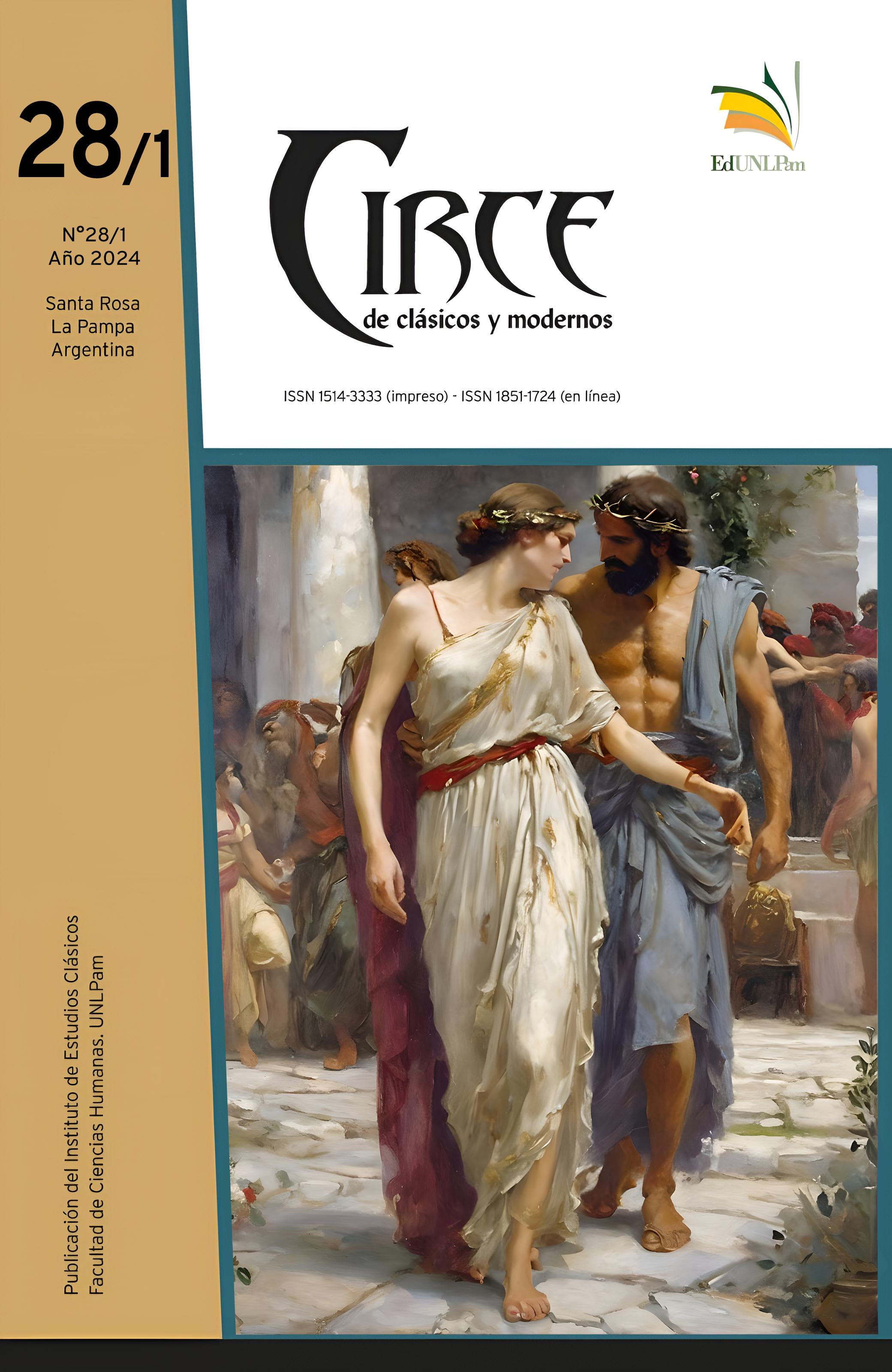The rape of Europa in Ancient Literature: from the Hellenistic period to Late-antiquity
Keywords:
Europa, Moschus, myth, abduction, meadowAbstract
The present work aims to explore a series of constituent elements of the myth of the rape of Europa in the versions of Moshus (Europa), Ovid (Metamorphosis 2. 833-875 and 6. 103-107; Fasti 5. 603-620), Achilles Tatius (Leucippe and Clitophon 1), Lucian of Samosata (“Zephyrus and Notus”, Dialogues of the Sea Gods) and Nonus of Panopolis (Dionysiaca 1). The objective is to try to determine the source(s) that each author could have used, based on the mention or omission of some of these components in the different rewritings, as well as the changes in the way they are used.
Downloads
Downloads
Published
Issue
Section
License
Los autores que tengan publicaciones con esta revista, aceptan los términos siguientes referidos a los derechos de autor/a:
1. Los autores/as conservarán sus derechos de autor y garantizarán a la revista el derecho de primera publicación de su obra, el cuál estará simultáneamente sujeto a la Licencia de reconocimiento de Licencia Creative Commons Atribución-NoComercial-CompartirIgual 4.0 Internacional (http://creativecommons.org/licenses/by-nc-sa/4.0/). que permite a terceros compartir la obra siempre que se indique su autor y su primera publicación esta revista. El autor es el titular del copyright.
2. Los autores/as podrán adoptar otros acuerdos de licencia no exclusiva de distribución de la versión de la obra publicada (postprint) siempre que se indique la publicación inicial en esta revista. La cesión de derechos no exclusivos implica también la autorización por parte de los autores para que el trabajo sea depositado en el repositorio institucional y difundido a través de las bases de datos que el editor considere adecuadas para su indización, con miras a incrementar la visibilidad de la publicación y de sus autores.
3. Se permite y recomienda a los autores/as difundir su obra a través de Internet antes y durante el proceso de envío, lo cual puede producir intercambios interesantes y aumentar las citas de la obra publicada.







.jpg)









2.png)



